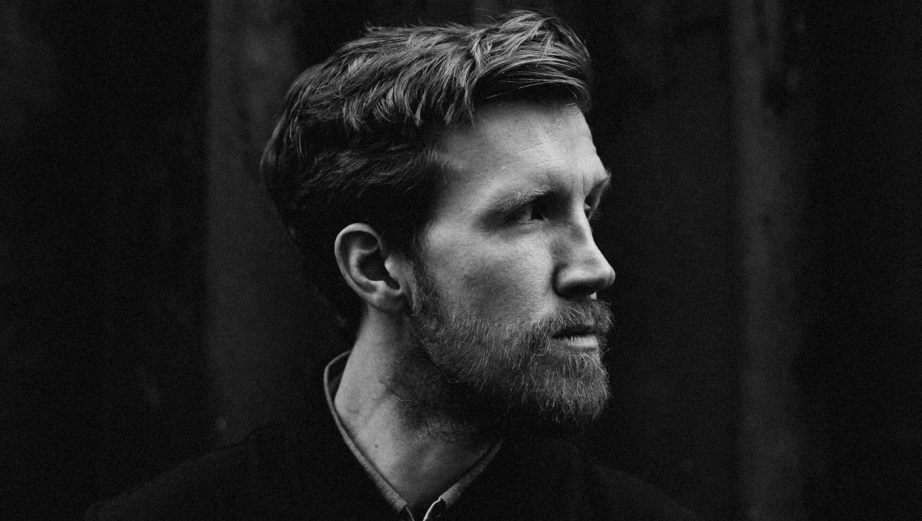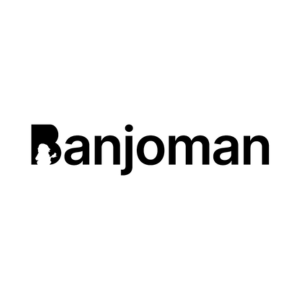
The Directors: Jack Weatherley

A versatile and award-winning director, Jack Weatherley's work is driven by a passion for emotive storytelling, personal narratives, and the ability to hone affecting performances from those he collaborates with. From working alongside some of the world’s highest profile athletes to crafting music videos and short films with the likes of Nick Cave and Warren Ellis, he blends a cinematic style with an authentic, poetic sensibility.
Throughout his career, Jack has directed commercials for brands including Nike, Rolex, and LinkedIn - as well as working with some of the biggest names in the sporting world such as Cristiano Ronaldo, Lionel Messi, Paul Pogba, Wladimir Klitschko, and Mo Farah. Notable works include his UEFA ‘Equal Game’ commercial, winner of the Grand Prix at the 2017 Sportel sports marketing awards, and the high-octane Facebook commercial ‘Anthem’, which captures athletes training in the run up to the 2020 Tokyo Olympics.
Alongside his commercial work, Jack has garnered worldwide recognition for his short films and narrative projects. His short film ‘Pieces’, for example, starred Michael Smiley and George MacKay and premiered at the 57th BFI London Film Festival. He’s explored love and loss in ‘The Hope You Promised Love’ (starring Jim Sturgess and Stacy Martin) and directed the striking music video starring Paul Kaye for Nick Cave and Warren Ellis’ reworking of Toydrum’s ‘I’ve Got a Future’.
In addition to this, Jack has also been named a ‘director to watch’ by MovieScope magazine and was selected for the BFI’s prestigious Guiding Lights program where he was mentored by Peter Strickland. He has received multiple Vimeo Staff Picks for his work and is currently developing his first feature film.
Closely connected to Ireland by his partner, Jack has long admired the region’s creative output. Drawn specifically to Banjoman by their ability to deliver human, authentic stories, Jack will be working to unpack and explore the country’s cultural references through his craft.
Name: Jack Weatherley
Location: London
Repped by/in: Believe, UK / Europe; Banjoman, Ireland
Awards: Grand Prix at Sportel
LBB> What elements of a script sets one apart from the other and what sort of scripts get you excited to shoot them?
Jack> Scripts that actually make you feel something are the ones I emote to and want to make. That feeling can be awe, inspiration, empathy, joy, it doesn’t really matter, just as long as you feel something other than indifference! The poetic and the visceral are always more exciting than the literal. I think value and importance should be placed in strong, original ideas, narrative and feeling. As opposed to edit transitions and which frames can go on Instagram.
LBB> How do you approach creating a treatment for a spot?
Jack> It depends from project to project and also how developed the script is. If it’s been really well thought through and has a very clear tone of voice and message, with lots of existing visual reference, then typically I’ll spend a lot of time focussing on execution and discussing my reasoning for the creative suggestions I’m making. If there’s more of a blueprint type script with scope for more play, that’s when things can get really exciting and I’ll always try and sell in ideas that feel justified and motivated and that I know will feel and look beautiful. I feel as though nowadays we run the risk of original ideas becoming fewer and fewer, as everyone references everyone else and it’s as though we’re living in some kind of real life Pinterest board. So I like to reference other visuals and images that don’t necessarily come from ads or films but which speak to the type of feeling or emotion I’m trying to convey.
LBB> If the script is for a brand that you're not familiar with/ don’t have a big affinity with or a market you're new to, how important is it for you to do research and understand that strategic and contextual side of the ad? If it’s important to you, how do you do it?
Jack> Obviously it's essential with every film to try and get a really clear idea of what the brand is trying to say and what they want an audience to feel. I try and spend as much time as possible discussing ideas with both agency and client, to make sure we all understand one another in a very transparent way. Generally I find that if you understand the desired message and feeling, you’re in a good place.
LBB> For you, what is the most important working relationship for a director to have with another person in making an ad? And why?
Jack> That’s a tough one! I love the collaborative aspect of filmmaking and obviously everyone has a major role to play. In ads I’d say it’s probably whichever agency creative has the best relationship with the client, or even the clients themselves. Collaboration is really important to me and it’s never conducive to a quality piece of work or a nice working environment if people retreat to their corners and get very “them and us” about stuff. It’s so much better to be open and honest with things and be bold and brave in the shape of the work you’re making together.
LBB> What type of work are you most passionate about - is there a particular genre or subject matter or style you are most drawn to?
Jack> This goes back to what I was saying earlier about strong, original ideas. Those are the ones that I feel most passionately about. More than anything, I love working with people on crafting and honing performance and the feeling it evokes. It doesn’t matter which genre or subject matter.
LBB> What misconception about you or your work do you most often encounter and why is it wrong?
Jack> That I’m a 'sport' director. I get it of course, ad directors get pigeon-holed, which is totally understandable and a lot of my work has historically been, and still is, sports based. Ultimately people want a director who is experienced and knowledgeable in the area of the project they’re working on at the time. But I’d love to do more work that isn’t sports based and I think a lot of my strongest work has been narrative and performance based.
LBB> What’s the craziest problem you’ve come across in the course of a production – and how did you solve it?
Jack> Too many NDAs to answer this one!
LBB> How do you strike the balance between being open/collaborative with the agency and brand client while also protecting the idea?
Jack> I think this comes down again to honesty and good communication and a genuine willingness from all parties to explore and collaborate in the name of a stronger piece of work. If I feel very passionately about an idea or that the wrong decision is being made which will result in a much poorer film or campaign, I’ll absolutely do everything I can to make a case for that reasoning. Ultimately we all want that piece of work to be something we’re really proud of.
LBB> What are your thoughts on opening up the production world to a more diverse pool of talent? Are you open to mentoring and apprenticeships on set?
Jack> It has to happen and in a meaningful way. In the ten years or so that I’ve been involved in commercials, I can honestly say that the majority of people involved, whether agency, production or crew, have been white and middle-class, which is madness and totally disproportionate. I’ve done some mentorship before and am totally open to mentoring and apprenticeships on set, for sure.
LBB> How do you feel the pandemic is going to influence the way you work into the longer term? Have you picked up new habits that you feel will stick around for a long time?
Jack> Obviously Zoom is now firmly a part of all of our lives and I don’t think that’s necessarily a bad thing. For PPMs in particular if people are spread out over long distances, it’s actually very helpful. I don’t know if I’ve picked up any new habits but I did one remote directing job during the pandemic and I’d rather not have to do that again!
LBB> Your work is now presented in so many different formats - to what extent do you keep each in mind while you're working (and, equally, to what degree is it possible to do so)?
Jack> There’s definitely been a push over the last couple of years to multiple platform delivery, where you’re delivering the main TVC or cinema spot and then social media cuts in different frame sizes. It can become a bit of a mind melt when you’ve got three different colours of tape on your monitor for the various aspect ratios! I always say to clients that it wouldn’t be to the benefit of the main spot if we’re making compromises on framing, composition or choreography for example in the name of a social media edit. Not every element of a film will translate perfectly across so many different formats and you just have to be open and honest in manging expectations.
LBB> What’s your relationship with new technology and, if at all, how do you incorporate future-facing tech into your work (e.g. virtual production, interactive storytelling, AI/data-driven visuals etc)?
Jack> I think I’m quite old school to be honest, in that unless there’s some new tech that specifically has to be used for a job, like a smaller or remote camera set-up, where a regular camera can’t go, I’m very happy to use conventional gear. That said, I am interested to see what’s possible in an unreal engine virtual studio, it seems totally bonkers and I’d be very interested to see just how authentic it looks.
LBB> Which pieces of work do you feel really show off what you do best – and why?
Jack> I’m really happy with how my recent cinema spot for UWE Bristol turned out. Our clients cried when they saw it at their first viewing and not in a “What have you done with our money?!” kind of way. That’s pretty much as good as it gets.













